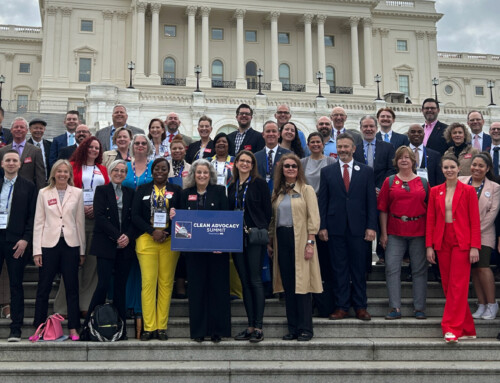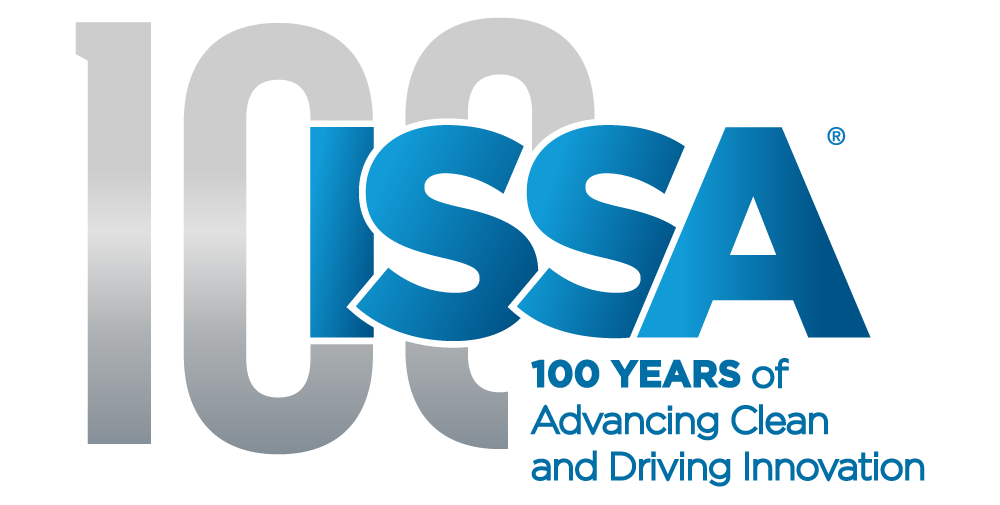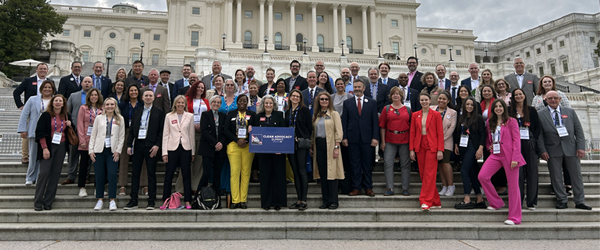The ISSA Impact on the Coronavirus Response

There has been a plethora of government—federal, state, and local—responses to the novel coronavirus crisis in the U.S., many of which significantly impact the full spectrum of the cleaning industry.
Accordingly, ISSA has been proactively advocating on behalf of its members and the industry on a number of issues such as “essential business” designations, reducing barriers impacting the manufacturing of important cleaning products and equipment, weighing in on the federal response bills, as well as looking ahead to the reopening of the economy by creating and pushing the Clean Start Initiative.
ISSA speaks with the White House
On March 17, John H. Barrett, ISSA executive director, participated in a conference call with U.S. President Donald Trump and Vice President Mike Pence. The call focused on the importance of maintaining a strong supply chain for critical supplies in the face of the COVID-19 emergency.
The government affairs team has continued our discussions with the White House and other key officials.
Vice President Mike Pence sent a letter thanking Barrett and ISSA for our continued work to ensure the health and safety of the American people.
Cleaning IS Essential
ISSA launched its “Cleaning IS Essential” advocacy campaign and to date 10,481 messages have been sent to more than 2,250 elected officials in all 50 states, urging them to designate the entire cleaning industry as essential. These messages made it clear our members provide products and services that are indispensable in the effort to combat the spread of the coronavirus.
ISSA worked closely with the U.S. Cybersecurity and Infrastructure Security Agency to ensure the full spectrum of the cleaning industry was sufficiently represented in the agency’s Memorandum on Identification of Essential Critical Infrastructure Workers During COVID-19 Response, including adding a Hygiene Products and Services section to the updated guidance.
Many state governors have used this federal guidance as the basis for their own stay-at-home orders.
ISSA followed up on these efforts by sending a letter to every U.S. governor, urging them to recognize the cleaning industry as “essential.” Nearly all the 43 state “stay-at-home” orders put in place, designate the cleaning industry—including residential cleaners, building service contractors, chemical and non-chemical manufacturers, as well as distributors—as essential.
Our Essential Business Resources page includes a chart for our members summarizing the “stay-at-home” orders as well as providing members Open for Business Letters for Employees, Customers, and Vendors, which can be customized to reinforce the essential nature of their business.
Federal action
ISSA’s government affairs staff and lobbying firm engaged federal policymakers on both the Families First Coronavirus Response Act (FFCRA) and Coronavirus Aid, Relief, and Economic Security Act (CARES). We have also been answering our members’ most frequently asked questions related to such issues to help them comply with the changing rules and regulations surrounding this and other federal programs.
On March 6, President Trump signed the first coronavirus response measure into law which provided about $8 billion for immediate response efforts to the U.S. Health and Human Services Department, U.S. State Department, U.S. Agency for International Development, and U.S. Small Business Administration.
On March 18, the United States Congress passed the FFCRA. ISSA helped get important “technical” changes to allow the U.S. Labor Department secretary to exempt small businesses with fewer than 50 employees from abiding by the leave requirement if it would significantly impact the “viability of the business.”
It also narrowed the leave program definitions to focus on families caring for children that don’t have school or daycare anymore. Emergency family leave will now begin after 10 days, rather than after 14 days, assistance is now capped at $10,000 per employee, and paid sick leave and family leave now have increased tax credits to include amounts from employee’s health care plan for leave.
On March 27, Congress passed a third economic stimulus bill. The $2 trillion law known as CARES includes a package of tax relief provisions, corporate and small business loan programs, and a taxpayer rebate program. The bill provides funding to the U.S. Environmental Protection Agency (EPA) for the expedited review of chemicals that are effective against the novel coronavirus that causes COVID-19.
In addition, the bill extends the U.S. Department of Homeland Security’s Chemical Facility Anti-Terrorism Standards program through July 23, 2020. The bill also includes a host of funding for federal agencies and programs including cleaning. On April 23, there was an additional $484 billion in relief funding for small businesses, hospitals, and testing.
Talks of a fourth or even fifth package are also being considered.
What’s next?
There is significant research demonstrating the novel coronavirus can survive on surfaces for days unless properly cleaned and disinfected.
As a result, the combination of properly trained and certified cleaning personnel and products are critical in helping to prevent the further spread of this virus once businesses are permitted to reopen.
ISSA has launched its Clean Start advocacy campaign which includes two provisions, Clean Start: Back to Work Tax Credit and Clean Start: Worker Safety and Health Standards. These provisions, if enacted, will help businesses protect their workforce from the novel coronavirus that causes COVID-19, as well as any future emerging pathogens.
The Clean Start: Worker Safety and Health Standards would require the U.S. Department of Labor’s Occupational Safety and Health Administration (OSHA) to update its General Industry Standards.
The Clean Start: Back to Work Tax Credit would create a temporary, refundable tax credit program available to businesses. This credit would be used to make sure workspaces are properly cleaned and disinfected when “stay-at-home” restrictions are lifted and to help prevent further infections.
The Clean Start tax credit would help businesses, property managers, and cleaning companies ensure they are able to maintain a safe and sanitary environment for their workers and customers by providing a tax credit for businesses to train their existing staff on proper disinfection techniques, hire a certified professional cleaning company, and/or buy necessary cleaning products and equipment.
ISSA will continue working diligently to support the full-spectrum of the cleaning industry during the COVID-19 emergency and beyond.
















